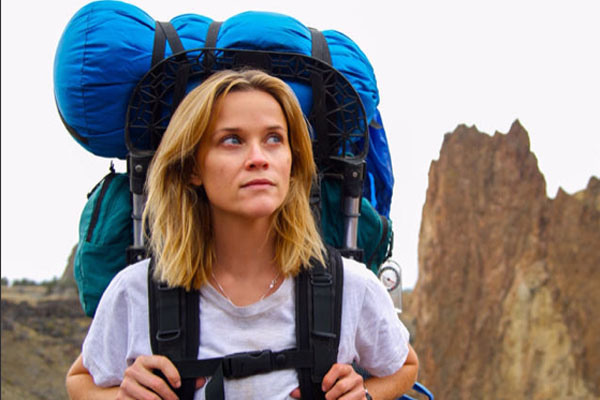Reese Witherspoon, Laura Dern and director Jean-Marc Vallee bring Cheryl Strayed’s best-selling memoir of overcoming drug abuse to the big screen
![]()
Director: Jean-Marc Vallee
Starring: Reese Witherspoon, Laura Dern, Thomas Sadoski
Rating: 15
Running Time: 115 mins
Release Date: January 16th
Based on a popular memoir by Cheryl Strand, WILD is the tale of one woman’s journey through 1000 kilometres of the Pacific West Trail’s taxing terrain. Cheryl, played by Reese Witherspoon – after a family tragedy and a string of reckless decisions – embarks on a trek she hopes will kick start her life. The film is interspersed with flashbacks, telling the background story of Cheryl’s mum, Bobbi (Laura Dern) and Cheryl’s road to ruin.
Any momentum WILD might have had is derailed by the excessive flashbacks. The journey’s sense of grandeur and spirituality is further hampered by – incredibly – how visually underwhelming it is. There is a distinct lack of cinematic vision, here. While the locations are stunning, any aesthetic is mired by parochial cinematography, attenuating its sense of scale. Often films shoot themselves on the strength of the setting alone, sadly not here.
The background story contains the meat of WILD’s feminist subtext. Bobbi is a traditionally stoic wife and mother, who shakes disappointment off with forced smiles and silver linings at every opportunity. As Cheryl gets into feminist literature at school, her attitude to her mother becomes less sympathetic and more disdainful. When Bobbi gets ill, she too enrols in Cheryl’s courses, and begins to believe her role as mother and wife has hamstrung her possibilities, making her a passenger of her own life.
Whereas motherhood is treated as a burden, the film strangely tows an ambiguous line on openly detrimental behaviour. Cheryl’s cheating and hard drug taking – although a reaction to family tragedy – is treated as acts of freedom. Cheryl’s self-destructive behaviour remains a badge of honour throughout. She affirms her past in a Nietzschean manner by stating she regrets nothing and would do it all again.
Regret is an important ingredient to breaking vicious cycles. Without it, one sets themselves up to repeated behaviour. Cheryl taking pride in her acts of depravity because she can, does not efface their decadence. Any enlightenment the film purports to reach at the end feels cheap, especially so soon after Cheryl beds a muscular hippy guy without a thought in the world.
Disappointingly, the characters Cheryl encounters are largely forgettable cyphers. Predominantly men, they serve little symbolic value beyond the feminist fears of tradition, imminent rape, and rational order. Included are an old fashion patriarch; a hunter with Cheryl in his sights; and a humourless, bureaucratic postman. Compared to films of a similar vein (INTO THE WILD, THE GREY), where encounters act as doorways to new lines of thought, WILD simply closes them.
Because the film’s characters are flat and its atmosphere falls short, Reese Witherspoon’s performance is more salient than deserved. She is good, but this isn’t the Oscar performance the film was designed to nurture. She fails to develop upon the range of emotions an awe-inspiring journey would elicit. Perhaps with a deeper script and solid characters to bounce off, she’d have excelled. Alas, WILD is a deflating, overly long film. It lacks any real insight into a journey itching with spiritual possibility.
Verdict
![]()





























